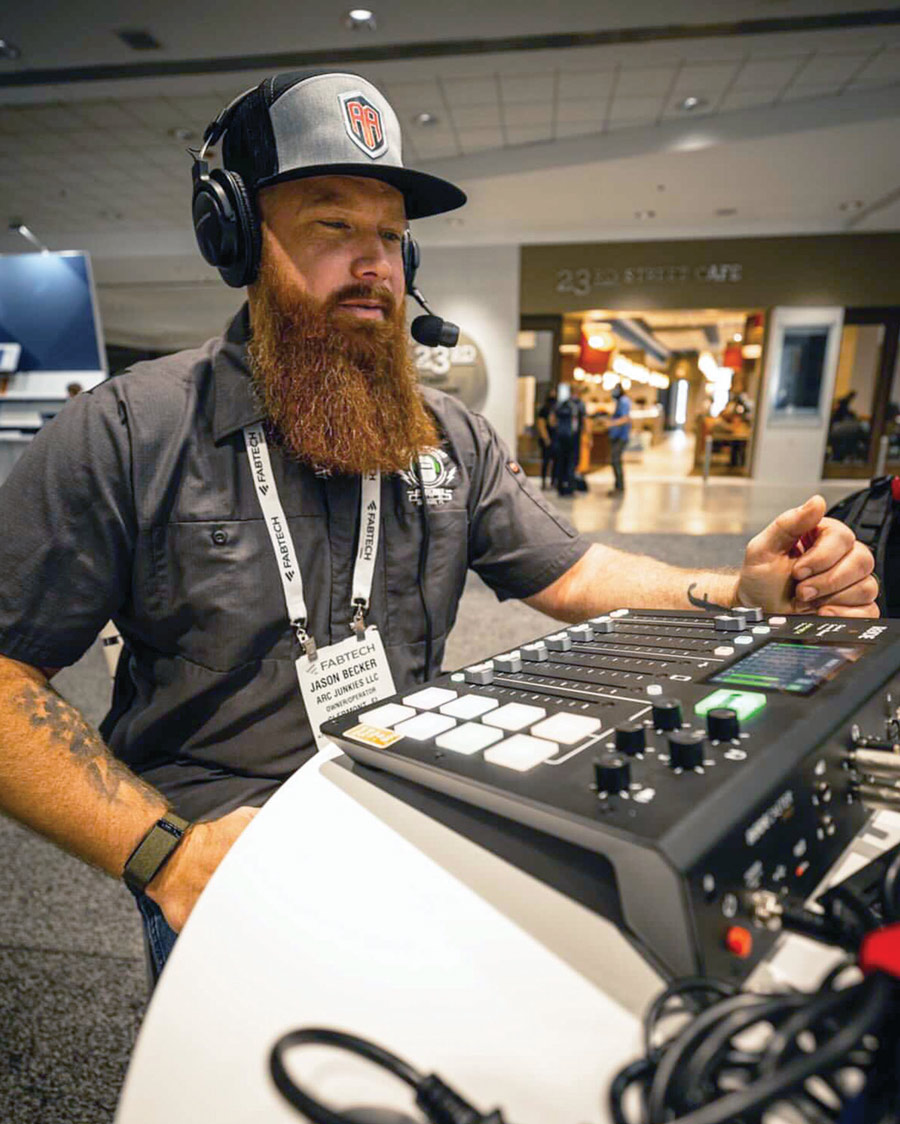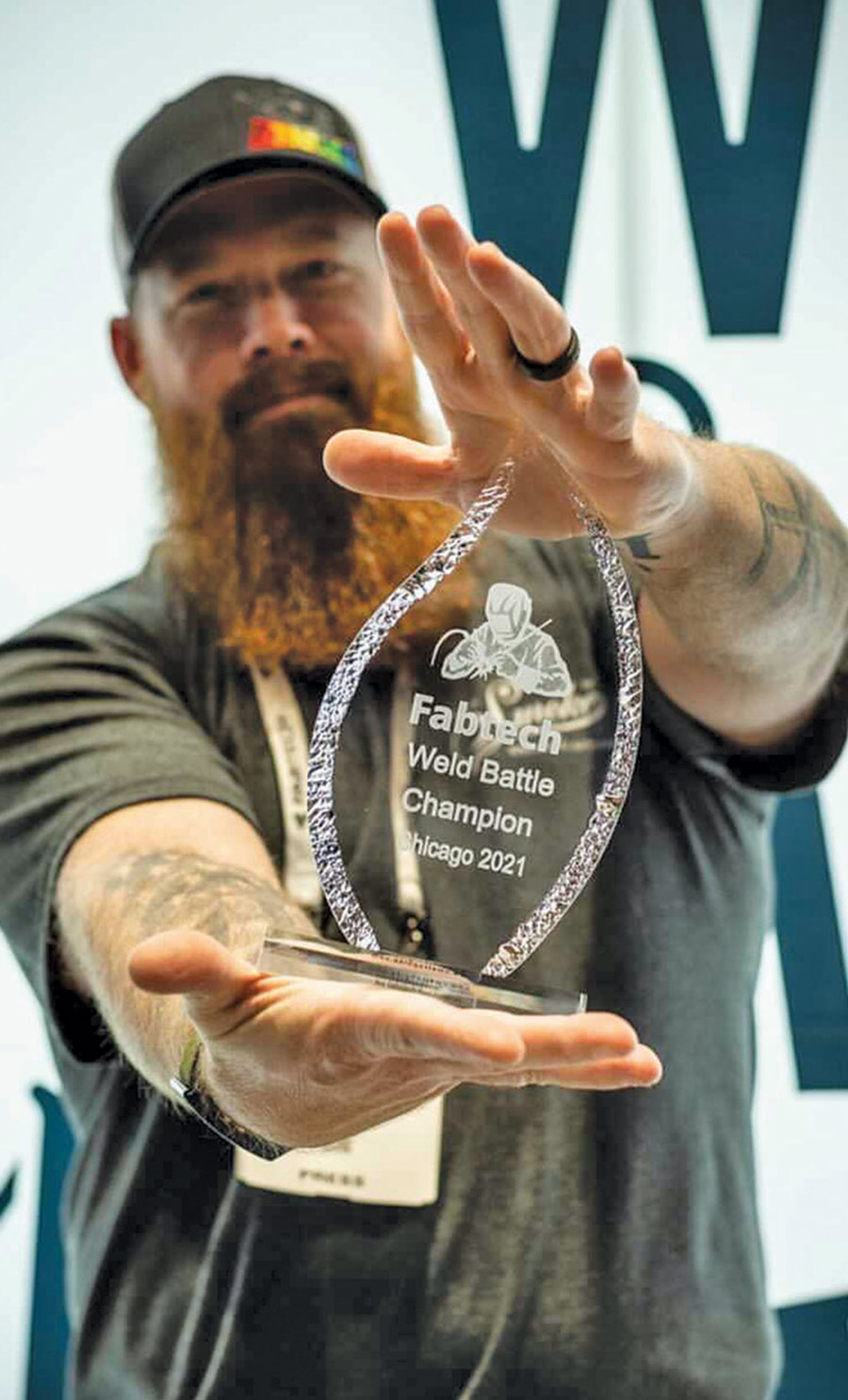Jason Becker, welding educator and podcast host, spearheaded a project-based learning program at Valencia College.

roject-based learning can be broadly described as real-world experience in an educational setting. Teaching welding with a project-based model requires a unique combination of not only welding skill and knowledge of tools used in the industry but also of blueprint reading, troubleshooting, budgeting, scheduling, and team- and relationship-building—not to mention providing students with industry exposure to field work.
Jason Becker, welding educator at Valencia College, Orlando, Florida, and host of the Arc Junkies podcast, knows firsthand what this looks like in real time. After attending an Advanced Educators’ Workshop in 2017, Becker started a project-based learning program at Valencia College. He started small but has since raised the bar with additional and more complex projects relevant to various industry applications.
The 40-week certificate program requires students to complete 1,050 hours of training and maintain a 70 percent average. And because Valencia recently became an AWS Accredited Test Facility (ATF), students have the option to test to become an AWS certified welder.
“We work a lot with employers to make sure that we’re meeting their needs, because our goal is to train the students for industry employment,” says Becker. “We ask them what skills they’re looking for and what students need to be capable of [doing] upon hire.”
For example, one employer asked Becker to work on a project that involves a weld lug assembly.
“I was looking for blueprints, and they said, ‘Here is one of the weld tests that we give applicants. Take it and see if your students can build it,’” says Becker. “I cut the pieces out, but the student has to slot holes in the appropriate places using the appropriate welding process. It can’t be distorted or warped. The important part isn’t just welding it together; it’s welding it together and maintaining the tolerances needed.
“Once they learn how to run the welding process in all four positions [flat, horizontal, vertical and overhead], then they get a blueprint for the project they need to weld using the process they’re learning,” says Becker. “Industry needs people who know how to weld but also needs them to be able to pick up a set of blueprints and build something.”

 Our goal is to train the students for industry employment.
Our goal is to train the students for industry employment. 
“We only recently started testing, and 21 students have already earned certifications,” says Becker. “Walking into a potential employer with these recognized credentials, even if the company wants you test in something else, shows that you have skill. And sometimes even more important is your confidence from already testing. There’s less anxiety.”
On the flip side, local industry has learned about Valencia’s new ATF capabilities and is starting to send their employees for certification.
“Being an ATF opens new doors,” says Becker. “Employers send workers in to get tested, but then they see our facility and have questions about the program.”
This creates a mutually beneficial relationship for the students, employers and schools. “Now I can say, ‘If you’re looking for people, I’ll get them trained and certified for what you’re doing, and when they come out, they’ll be ready,’” says Becker.
Along with the success of certifications is a recent grant win for the program. This year, Valencia received a $25,000 Welding Workforce Grant through the AWS Foundation. The grant is available to welding educational institutions that want to improve and expand their welder training programs to increase the number of welding graduates across the country. Valencia matched the grant to allow for the purchase of $50,000 in new equipment.
“I got a new slip roller, some sheet metal brakes, a sheet metal shear, fabrication tables and tools,” says Becker. “Having access to grants and scholarships from AWS has allowed us to bring in new equipment to teach even more fabrication skills.”
Valencia also is now the prime meeting space for the Central Florida-Orlando Section of AWS. After frequent travel to Ocala with students, Becker inquired about starting an AWS section in central Florida.
“The support from my college and local industry and welders helped make it happen,” says Becker. “It’s been great for us because now we get students and employers in one room for things like weld demonstrations, plant tours and technical talks on processes or equipment.”
The program is accelerating. At the end of each term, Becker and his instructors reflect and evaluate, but mostly look forward. Automation and cobot integration are a next step in potential curriculum expansion.
“Being able to integrate cobots into the system is the way the industry is going, and Valencia won’t be lagging behind.”